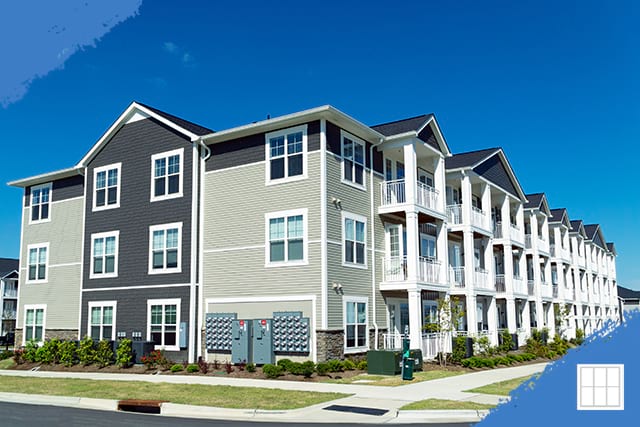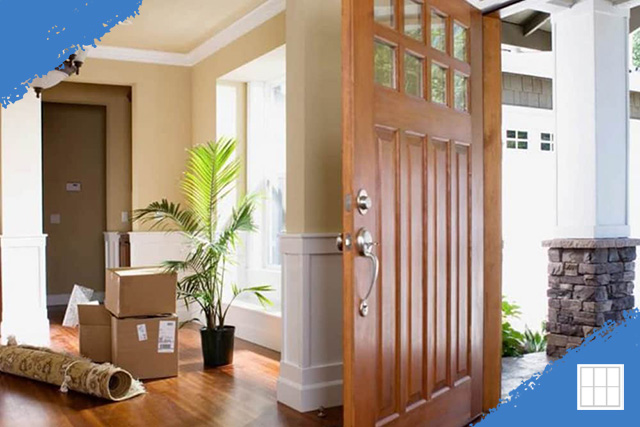Are you in the market to buy a home in Kansas City? With the current…

Homeownership vs. Renting: Pros and Cons for Different Life Stages
Deciding whether to buy a home or rent is a significant financial decision that varies based on one’s life stage. Homeownership vs. Renting both have distinct advantages and disadvantages that should be carefully weighed to determine which best fits your current situation and future goals.
Young Adults and Early Career
Renting
Young adults and early career professionals often lean toward renting due to its flexibility and lower upfront costs. Renting allows individuals to relocate easily, which is beneficial for those still exploring career opportunities or pursuing further education. With renting, maintenance and repair responsibilities fall on the landlord, reducing unexpected expenses for the tenant. Additionally, the lower upfront cost compared to buying a home allows renters to save and invest their money elsewhere.
Buying
For young adults who are settled in their careers and location, buying a home can be a smart investment. Homeownership provides the opportunity to build equity over time vs renting, which can be a valuable financial asset. Furthermore, mortgage interest payments are often tax-deductible, offering additional financial benefits. However, buying a home requires a significant upfront investment, including a down payment and closing costs, which might not be feasible for everyone at this stage.
Growing Families
Renting
Families with young children may find renting appealing due to the flexibility it offers. Renting allows families to move to different neighborhoods or school districts without the long-term commitment of owning a home. This flexibility is crucial for families who may need to relocate for better job opportunities or educational facilities. Additionally, renting can offer access to amenities such as pools, gyms, and community centers that might be unaffordable if purchased separately.
Buying
As families grow, the stability and space that come with homeownership become more attractive. Owning a home provides a stable environment for raising children, with the freedom to make modifications and improvements to suit family needs. Homeownership also offers long-term financial benefits, as paying a mortgage builds equity. However, families must consider the responsibility of maintenance and the potential for unexpected repair costs. It’s essential to have a stable income and savings to manage these expenses.
Middle-Aged Professionals
Renting
Middle-aged professionals who prioritize flexibility and lifestyle might prefer renting. Renting allows for easier relocation vs homeownership, which can be advantageous for those considering career changes or retirement in a different location. Additionally, renting can be less stressful since maintenance and repairs are handled by the landlord. This can free up time and resources for travel, hobbies, and other interests.
Buying
For those who are settled in their careers and community, buying a home can offer a sense of stability and long-term financial growth. Homeownership at this stage can also provide the opportunity to invest in property improvements that increase the home’s value. Additionally, owning a home can offer emotional satisfaction and a sense of pride. However, it’s important to consider the ongoing costs of home maintenance and potential market fluctuations that could impact home value.
Pre-Retirement and Retirement
Renting
As retirement approaches, renting can provide significant advantages, particularly in terms of flexibility and reduced responsibilities. Renters do not need to worry about the upkeep and maintenance that come with homeownership, which can become more challenging with age. Renting also allows retirees to downsize easily or move closer to family or better healthcare facilities without the burden of selling a home.
Buying
For those who prefer stability and the potential to leave a legacy, buying a home in retirement can be a good option. Owning a home provides a sense of security and control over one’s living environment. Additionally, with careful planning, retirees can pay off their mortgage before retiring, reducing living expenses. However, it’s crucial to consider the costs associated with homeownership, such as property taxes, insurance, and maintenance, which can impact retirement savings.
Homeownership vs. Renting Financial Considerations
Renting
Renting generally requires less upfront capital, with only the first month’s rent and a security deposit needed to secure a lease. Monthly rental payments are typically predictable, making budgeting easier. However, renters do not build equity and are subject to rent increases over time. Additionally, rental properties may come with restrictions on modifications and personalization.
Buying
Buying a home requires a significant upfront investment, including a down payment, closing costs, and moving expenses. Monthly mortgage payments can be stable with a fixed-rate loan, but homeownership also comes with additional costs such as property taxes, insurance, and maintenance. The key financial advantage of buying is building equity, which can be a valuable asset over time. Homeowners also have the freedom to make changes and improvements to their property.
Emotional and Lifestyle Considerations
Renting
Renting offers a sense of freedom and flexibility that can align with various lifestyle choices. It allows individuals to live in desirable locations they might not be able to afford to buy into. Renters also enjoy the benefit of having fewer long-term commitments, making it easier to adapt to changing life circumstances.
Buying
Homeownership provides a sense of permanence and belonging. Owning a home allows for personalization and creating a space that reflects one’s tastes and needs. It also offers the opportunity to be part of a community and establish roots. However, the responsibilities and financial commitments of homeownership require careful consideration and planning.
Homeownership vs. Renting Conclusion
The decision between Homeownership vs. Renting is deeply personal and varies based on individual circumstances and life stages. Young adults may value the flexibility of renting, while growing families might prioritize the stability and space that homeownership provides. Middle-aged professionals and retirees have unique considerations that influence their housing choices. By understanding the pros and cons of each option, individuals can make informed decisions that best suit their current needs and future goals.



